CLOSE-UP: Weah, ‘illiterate’ footballer who returned to school after knocks from Harvard graduate
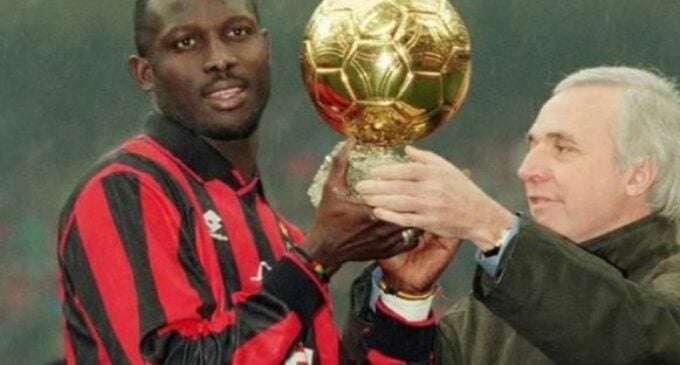
George Weah, one of the finest footballers ever known, has just penned his name in history as the first ex-footballer to be elected president of a country.
He emerged Liberia’s president after a run-off election contested between him and Joseph Boakai, who has been the deputy of outgoing President Ellen Johnson Sirleaf in the last 12 years.
In the first round conducted in October, Weah and Boakai ranked first and second with 38.8 percent and 28.8 percent of the votes respectively, but the constitution stipulates 50 percent to secure an outright win.
This is not his first attempt to take a shot at Liberia’s number one seat, anyway.
He first ran in 2005 when he formed the Congress for Democratic Change but succumbed to Sirleaf. Then in 2011, he came second as a vice-presidential candidate.
He is currently the senator for Montserrado county in Liberia, having been elected in 2014.
What else do we know about the footballer-turned-politician?
EARLY LIFE
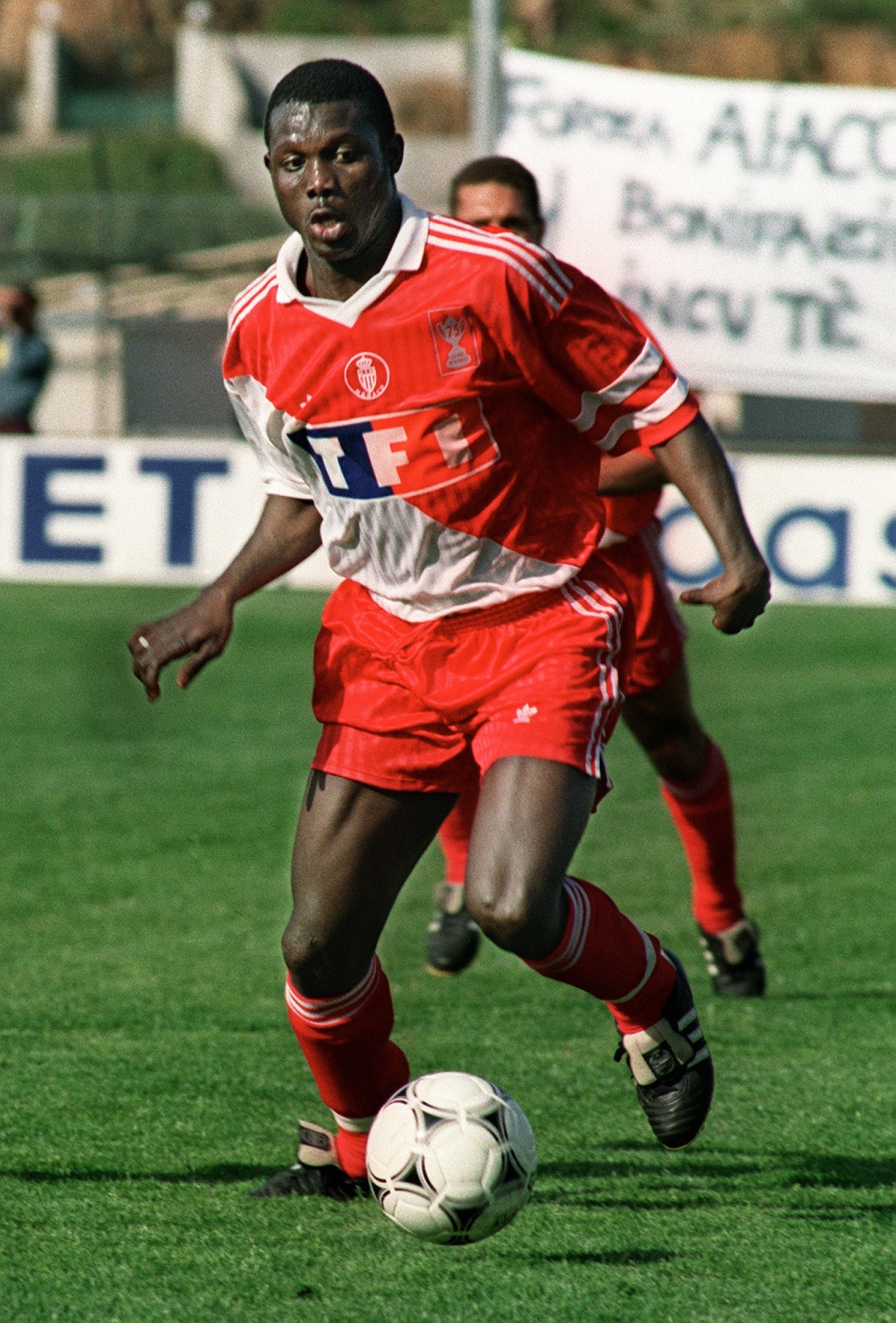
Turning out for MOnaco in France
Weah was born on October 1, 1966, in the Clara Town slum of Monrovia, Liberia, where he was said to have grown up in poverty.
A member of the Kru ethnic group and his parents, William Weah and Anna Quayeweah, were split up at his tender age. He was raised largely by his paternal grandmother, and attended middle school at Muslim Congress and high school at Wells Hairston High School, where reportedly dropped out in his final year.
GLISTERING FOOTBALL CAREER
As a teenager, he fell in love with soccer and began playing soccer for the Young Survivors youth club at the age of 15. He moved on to other prominent local clubs as his skills progressed, assuming starring roles for Mighty Barrolle and Invincible Eleven.
At 22, Weah’s promising football career caught the attention of Claude Le Roy, Cameroon national team coach, who helped in his move to AS Monaco under Arsène Wenger. A later move to Paris Saint-Germain brought more acclaim for Weah, helping his club win the French Cup in 1993 and the Ligue 1 title in 1994. He also finished as the Champions League’s leading scorer during the 1994-95 season.
His achievement that season earned him an unprecedented achievement – emerging as the African and European World Player of the Year and also winning the highly coveted Ballon D’Or award.
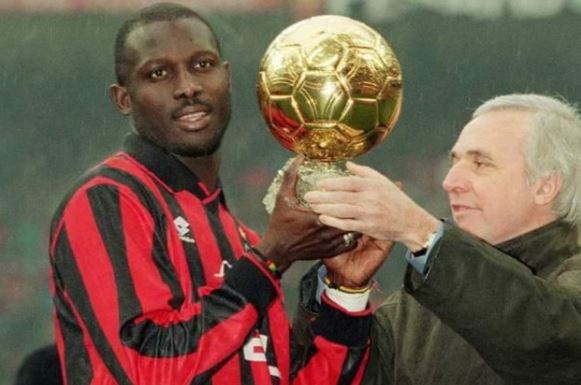
1995 Ballon D’Or winner
Weah then moved to AC Milan for the 1995-96 season and helped the club to win the Serie A title that season and in 1999.
He later fell out of favour with AC Milan after he got a six-match ban for breaking the nose of Jorge Costa, a Portuguese defender, and was subsequently loaned to Chelsea in January 2000. The move revitalized the Liberian striker, who scored in his debut and became a key figure in Chelsea’s march to the FA Cup.
He spent 2000-01 with Manchester City and Marseille, and then played two seasons with Al-Jazira before retiring in August 2003.
Weah was named African Player of the Year in 1989 and 1994 (making it three times), and was voted the African Player of the 20th century by the continent’s journalists in 1996.
He is widely regarded as the best-ever African footballer, with Brazilian legend Pelé naming him among the 125 greatest-ever players in 2004 on the occasion of FIFA’s 100th anniversary.
Professional Career Statistics
| Club | Year | Appearances | Goals |
|---|---|---|---|
| AS Monaco | 1988-1992 | 149 | 66 |
| PSG | 1992 – 1995 | 138 | 55 |
| AC Milan | 1995 – 1999 | 147 | 58 |
| Chelsea | 1999 – 2000 | 15 | 5 |
| Manchester City | 2000 | 9 | 4 |
| Marseille | 2000-2001 | 20 | 5 |
| Total | 478 | 193 |
Individual Awards
- African Footballer of the Year: 1989, 1994, 1995
- FIFA XI: 1991, 1996 (Reserve), 1997, 1998
- French Division 1 Foreign Player of the Year: 1990–91
- UEFA Champions League Top Scorer: 1994–95
- BBC African Footballer of the Year: 1995
- Onze d’Or: 1995
- Ballon d’Or: 1995
- FIFA World Player of the Year: 1995
- ESM Team of the Year: 1995–96
- Onze d’Argent: 1996
- FIFA Fair Play Award: 1996
- FIFA World Player of the Year – Silver award: 1996
- IFFHS African Player of the Century: 1996
HIS FIRST SHOT AT POLITICS
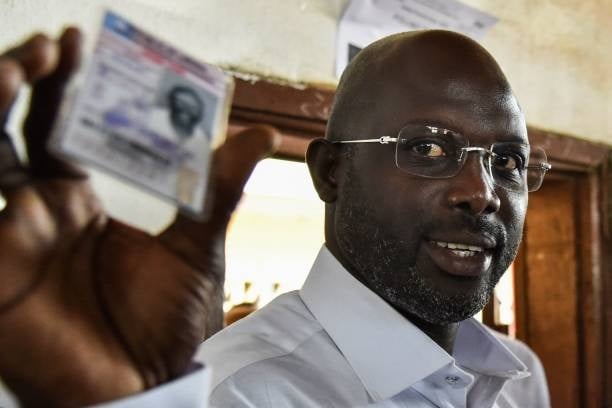
Weah displays his voter’s card
Following the end of Liberia’s second civil war in 2003, Weah announced his intention to run for the country’s presidency. He subsequently formed the Congress for Democratic Change to back his candidacy. After taking Sirleaf to a second round in 2005, the footballer was beaten as his rival garnered 59.4 percent of the vote against his 40.6 percent. He had fallen to Sirleaf largely because he was perceived as “illiterate” in contrast with the president who went through Harvard.
But Weah never backed down as he remained active on Liberia’s political scene.
He later ran as CDC’s vice-presidential candidate in the 2011 election, in which the party was again unsuccessful. In December 2014, Weah was elected to the Liberian senate, defeating the president’s son Robert Sirleaf with 78 percent of the votes.
A SCHOOL DROP OUT, WEAH RETURNED TO CLASSROOM
George had dropped out of school in his final year amid a promising football career but later returned to the classroom in 2007 after he lost to Sirleaf in the 2005 poll.
He had told the BBC at the time that “education is a continual process, it’s like a bicycle… if you don’t pedal you don’t go forward.
“It’s never enough – even the people who have PhDs are going back to school.
“Now I’m not playing no more and I have the opportunity to go back to the classroom.”
In 2011, he graduated from DeVry University in Florida, US, with a degree in Business Management.
‘PEOPLE THOUGHT I WAS JOKING’
In an interview with Daily Trust, Weah talked about the things that inspired him to make a swift turn from his football career to politics.
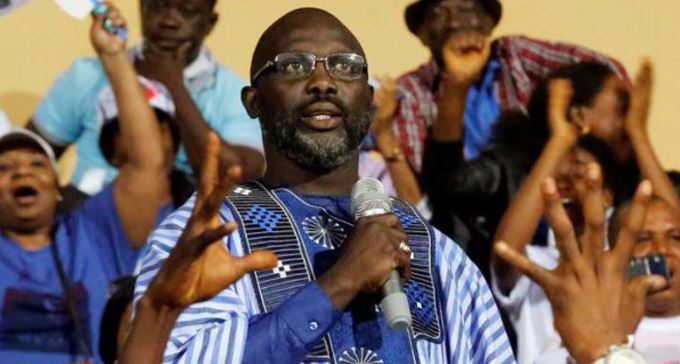
According to him, while he joined politics to help his country “in a different way”, not everyone took him serious.
He said: “For my entire life so far, and my career, I’ve been following Liberian politics and I’ve been involved, even on the international scene. I’ve been actively advocating against the war that ravaged my country. I spoke out, so sanity would return to Liberia.
“When I saw the child soldiers, and the lives they led, I decided to help them. I helped get them disarmed, and many of them even went to school, and are today doctors, lawyers and so on. I played a major role. And I was called on board, as I said earlier, by the people and they gave me their mandate. Even after all that has happened over the years at the polls, I still have that mandate
“After achieving all that I have in my soccer career, I decided not to go the coaching route, because I wanted to help my country in a different way. I also went back to school, up to Masters’ level and I’m currently a serving Senator. When I was joining politics, some people thought I was joking. But here we are today, and I have the people’s mandate.”
‘AFRICAN PRIDE’
In April 1997, Weah was appointed a UNICEF Goodwill Ambassador. The honorary appointment was based on his humanitarian work with the youth of Liberia during that country’s most turbulent times.
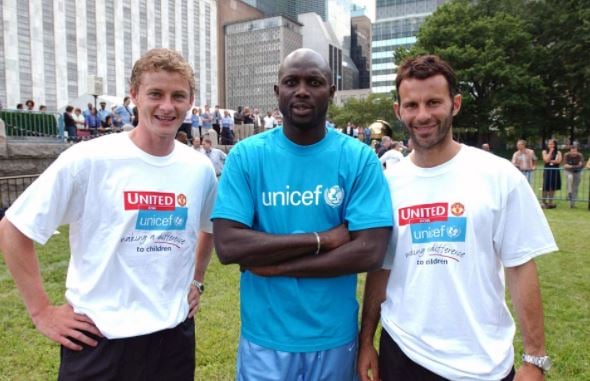
Weah with Ryan Giggs and Ole Gunnar Solskjær
His longstanding commitment to improving lives, both in Africa and around the world, has earned him the admiration of many with the former South African President Nelson Mandela quoted to have described him as the ‘African Pride’.
In 1994, he helped publicize immunization campaigns in Liberia, and as a UNICEF Goodwill ambassador, has given vital support for HIV/AIDS education programmes and other projects in Ghana and Liberia.
Weah’s humanitarian supports also extends to other countries outside African including the Netherlands, the UK, and the USA.In March 1998, in collaboration with the Italian Committee for UNICEF, Weah launched a CD called Lively Up Africa involving the singer Frisbie Omo Isibor and eight other African football stars. The proceeds went to children’s programmes in the countries of origin of the soccer players involved.





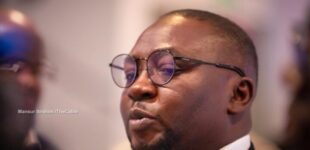
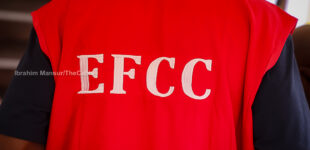
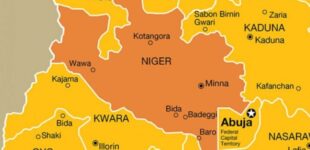
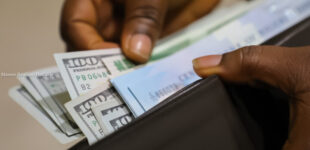
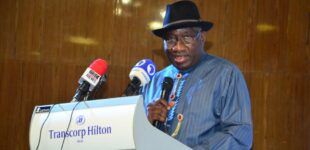
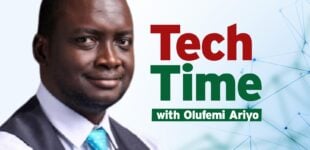
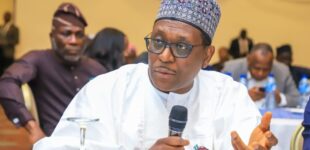
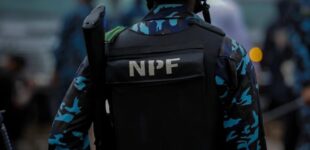
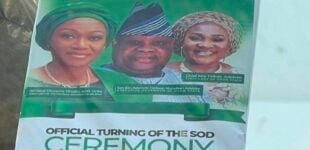
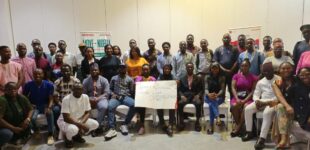

Congratulations. Initially rejected for lack of sound education but decided to go back to school: Spirit of humility. Nigeria should learn a lesson: please never elect illiterate to govern the nation again